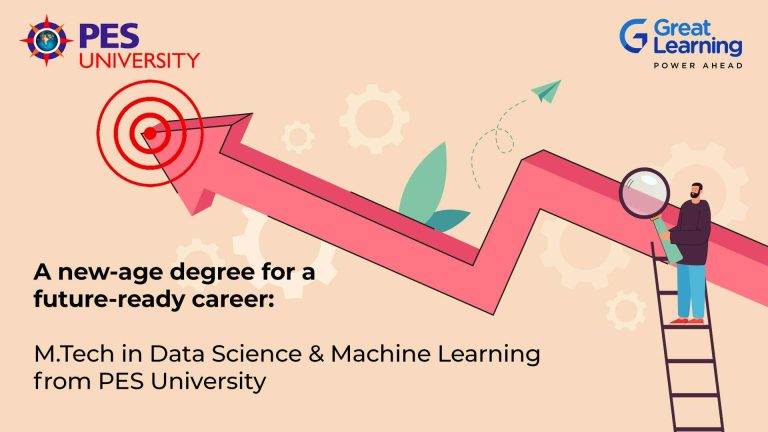“Jack of all trades, master of none” refers to someone who does not have a clear primary skill but above-average knowledge in multiple areas. The phrase, however, has always carried a negative connotation. Traditionally, specialisation has been the norm across industries as industry leaders believe breaking down large jobs into tiny components drives the employee’s efficiency and saves time and money. However, that’s not the case anymore.
In emerging industries like data science, technology changes rapidly, and skills can quickly become obsolete. As a result, innovation and quick learning have become crucial. In addition, the dynamic nature of the industry and rapid changes in the way teams function have made versatility and adaptability necessary conditions for growth.
While it is advantageous to have team members with specialised expertise, companies are starting to realise the benefits of hiring professionals with a wide array of skills who can adapt and evolve, aka generalists.
Catalysts to holistic growth
A generalist is a professional with an overall idea of multiple areas across the value chain of your company’s offerings. In the context of data science, a generalist should have varied skills and an in-depth understanding of the whole analytics process. This allows them to go beyond delivery and take up multiple roles while effectively translating business goals into solutions.
A huge part of the role of a data scientist lies in constantly learning and evolving as per the technological trends. With their ability to adapt to newer concepts and technologies, and a wide-ranging understanding of the overall processes, generalists make good data scientists. They can enable the broader and holistic growth of the organisation. As a result, organisations will be able to improve their capabilities and revenue, ensuring sustainability.
Secondly, enterprises are waking up to the importance of having analytics professionals in leadership roles to streamline data science functions. Companies are now laterally hiring for CDOs and CAOs. Here, enabling data scientists to grow into managerial roles is more beneficial for organisations since they are already accustomed to their work culture and values. A generalist approach to data science or hiring data scientists with a generalist disposition can drive organic growth.
For instance, a generalist in retail analytics would have more insight into their consumers and a broader understanding of the organisation’s processes. They’d also keep a close eye on the latest trends in the retail market and make changes and upgrades as necessary. A broader insight into the evolution of their consumer segments would enable the data scientist to guide other analysts and teammates in asking the right questions. This holistic approach helps organisations get the best business results.
Additionally, generalists can come in handy to solve one of the biggest managerial challenges: the lack of coordination between the front and backend, leading to blind handovers and lack of team communication. For instance, a specialist working on a data pipeline will coordinate with the deployment team to test the model’s functionality or partner with the engineering team to deploy newer versions. However, the prolonged back and forth on only one aspect of the project can hamper innovation. Generalists’ understanding allows them to facilitate better collaboration and enhanced productivity, leading to better outcomes.
The arsenal of generalists
Must-have generalist skills include technical skills in BI tools like Tableau, Python-Statistical Programming, Pandas, SQL, and a strong foundation in Statistics. In addition, they are expected to have expertise in subjects such as algorithm design and optimisation. This empowers generalists to create technical products and uniquely visualise them, which will optimise the innovation process. Having a strong foundation in Mathematics is a huge plus.
Soft skills also play an important role to ensure effective translation of a data scientist’s work. Most data scientists come from STEM backgrounds, and they usually find it easy to upskill when it comes to tools and technologies. Unfortunately, the same cannot be said for soft skills like communication, leadership, problem-solving, etc. This is especially true for fresh graduates. It is thus the responsibility of the employer to play an enabling role to train their employees in soft skills.
The combination of hard and soft skills can significantly improve company outcomes. Building a technical solution for the client’s problem is just half of it. The other half involves communicating the insights to business leaders in easily understandable language. Building strong relationships with stakeholders, transforming delivery to create elevated experiences, and problem-solving come under the soft skill category.
The ambition and inclination for continuous learning set the generalists apart as an invaluable resource in organisations. The perfect time to start upskilling employees is from onboarding. Organisations can do so with initiatives such as graduate upskilling programs.
Creating an organisational environment that encourages upskilling pushes the employees to deliver simpler solutions while growing continuously. This allows all the employees, the generalists and the specialists to have a broader perspective and think holistically for customer-centric solutions.
Wrapping up
Generalists don’t make the entire team but are integral to bringing the team together. This change in team structure creates a more holistic project operation, fosters creativity and allows individuals to put their best foot forward while working. When experts and generalists work together on a product, the outcome is bound to be elegant. I anticipate this team structure will be a treasured strategy for aspiring leaders. Undoubtedly, generalists will play a crucial role in shaping the data science industry.
This article is written by a member of the AIM Leaders Council. AIM Leaders Council is an invitation-only forum of senior executives in the Data Science and Analytics industry. To check if you are eligible for a membership, please fill out the form here.


















































































